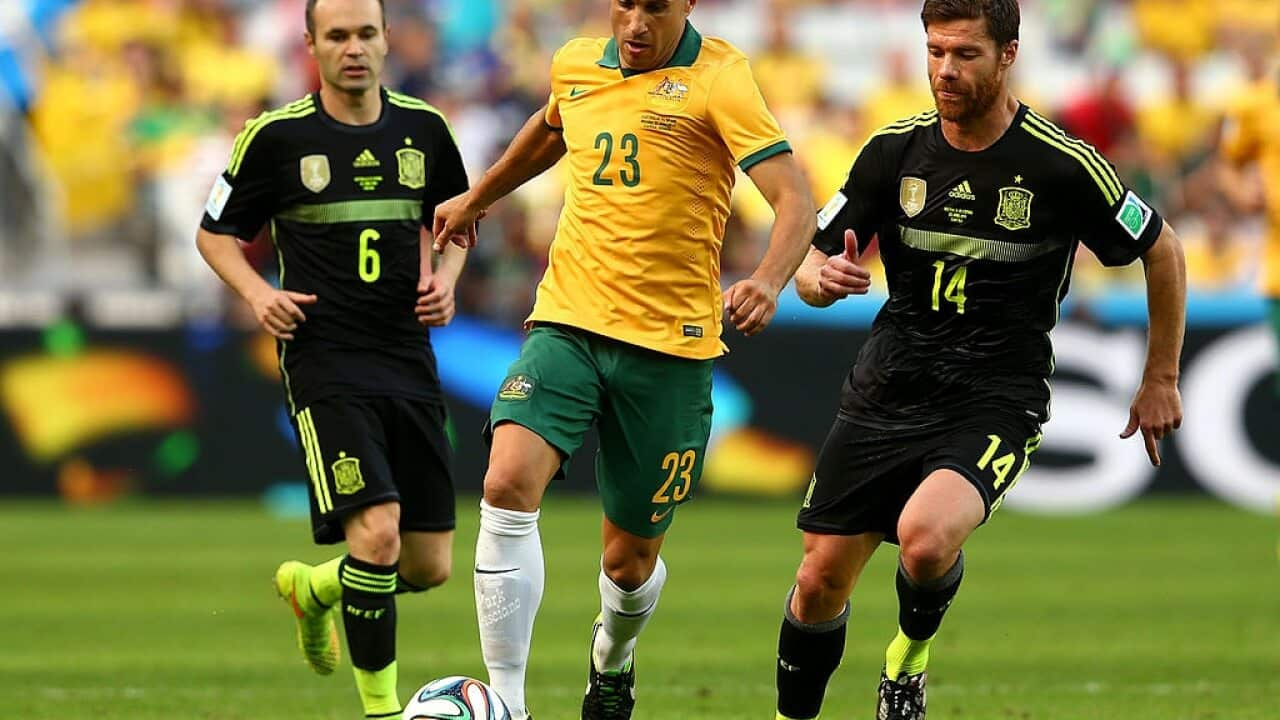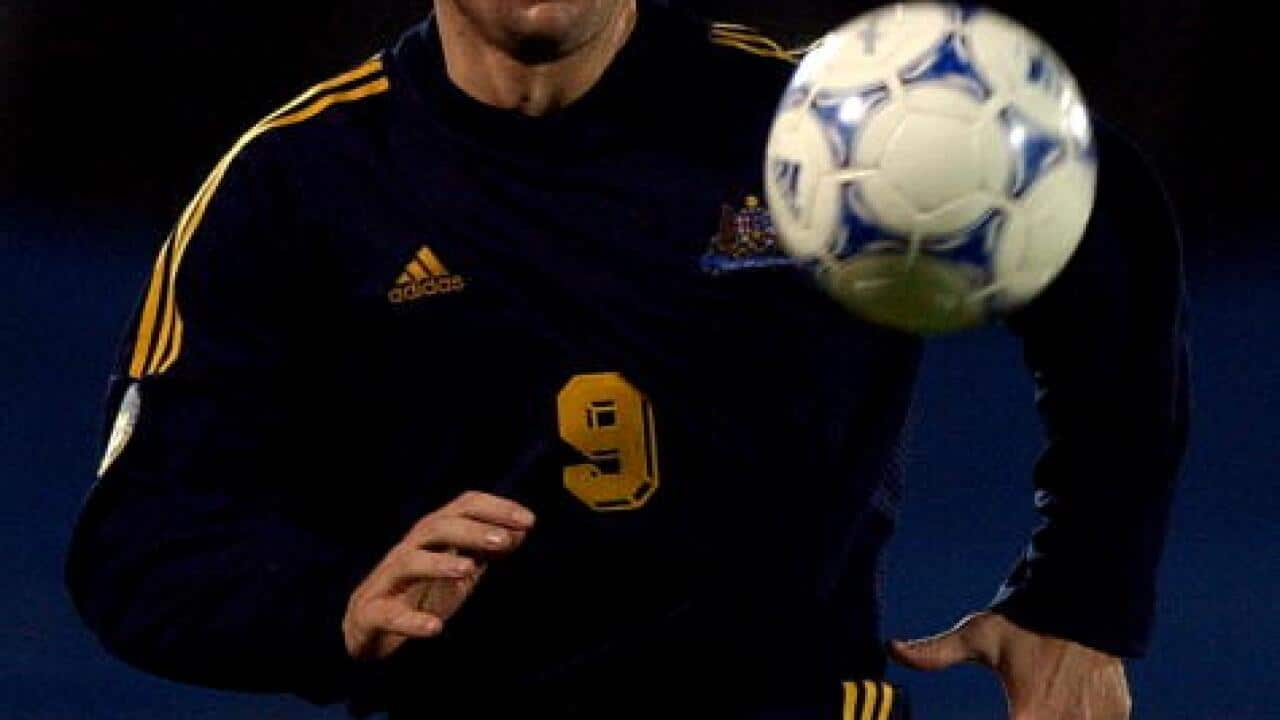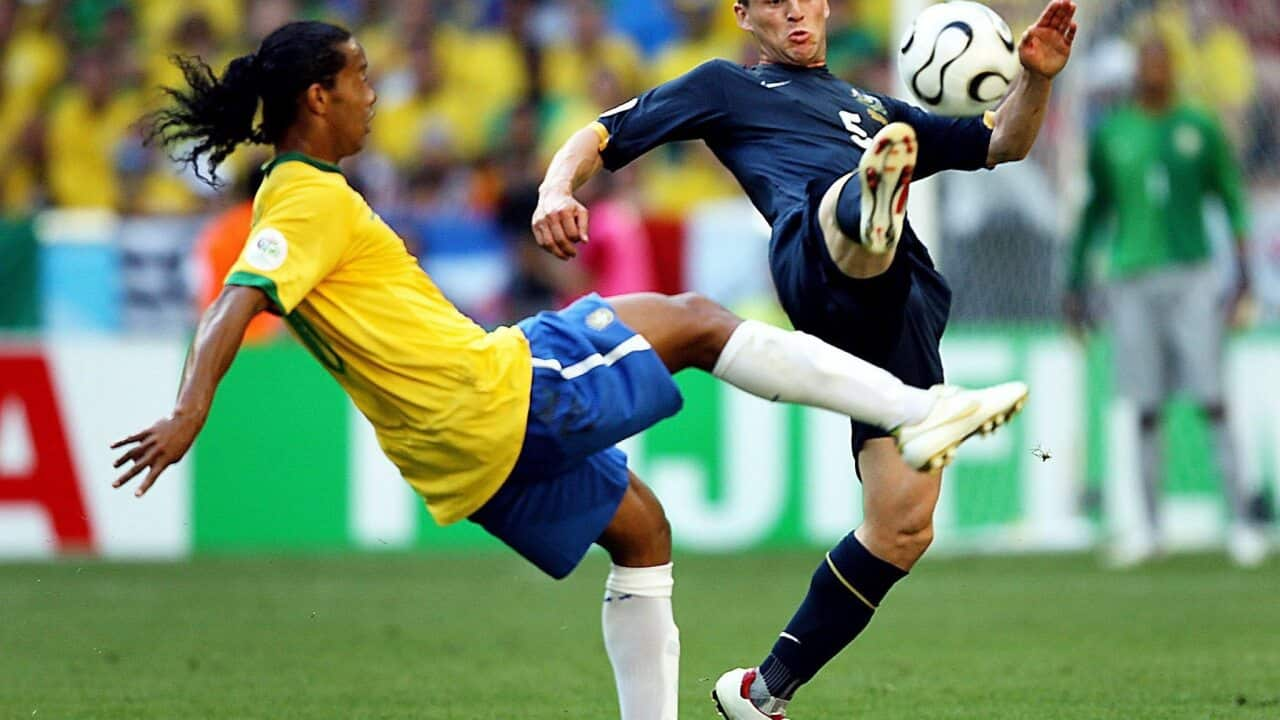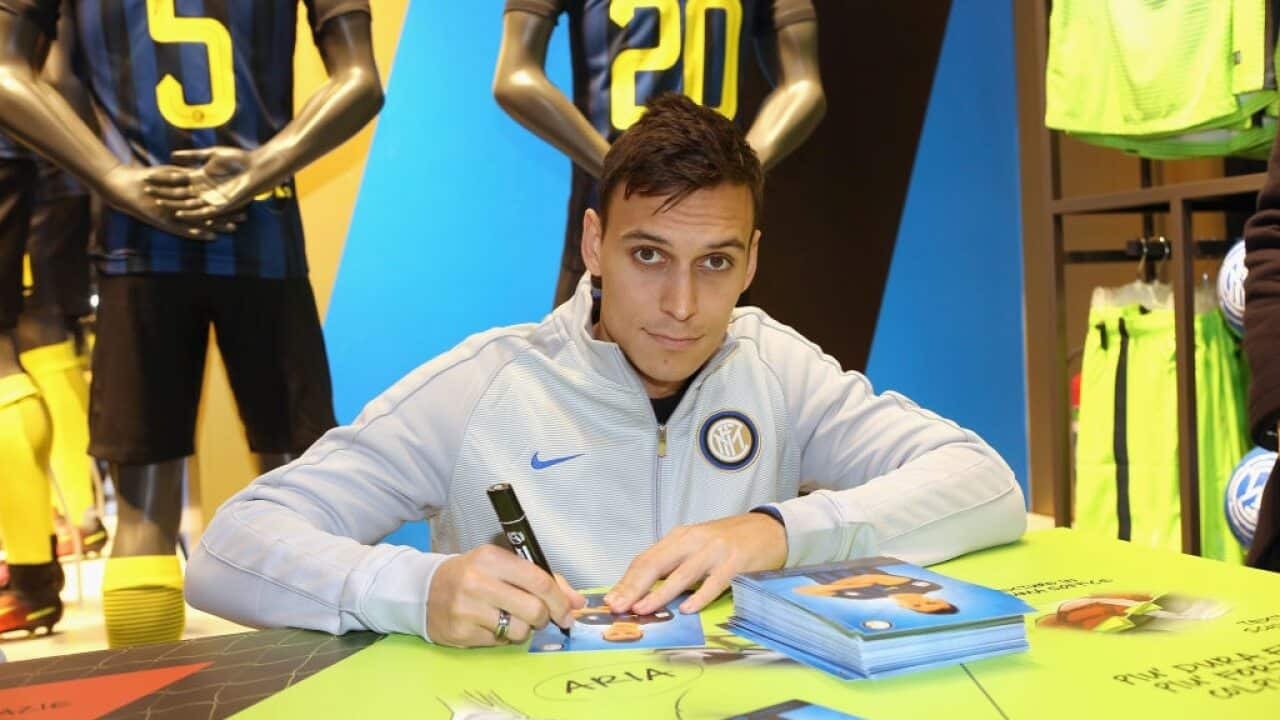Australia's World Cup midfielder Mark Bresciano revealed he did not fulfil his dream of ending his career back home simply because he became sick of the game he loved and adorned for many years.
Bresciano, one of the true gentlemen of Australian sport, said he would have loved to give something back to the game that launched his successful career, but he just could not do it anymore and did not want to do the wrong thing by whichever club engaged him.
"There were times when I was keen to come back to Australia and play in the A-League," Bresciano said.
"Honestly, my intentions were to come back after my contract was up in Qatar.
"But I didn't think I would finish my career this early.
"I remember one day I was driving to training in Qatar and it just hit me that I wanted to head back and go home and not go to training anymore.
"That day was when I made the decision: 'That's it, I'm done, I'm finished and I don't want to do this anymore'.
"I did not want to come back to Australia half-hearted and with less than a 100 per cent commitment. I would have preferred to continue playing but I just couldn't do it.
"I could not commit. I had had enough and I needed a break."
Bresciano said he fully understood the sentiments of fellow Socceroos hero Mark Schwarzer who once said that national team stars had a lot to lose by coming back to Australia because of the tall poppy syndrome that unfortunately is part of our football culture.
"I know where he was coming from, but this is not the reason I did not come back," he said.
"Schwarzer had a marvellous career and had he returned home, he would have done so towards the end of his playing time, well past his peak.
"People judge you on the last game you play and there have been instances of former Socceroos stars like John Aloisi, Harry Kewell and Vince Grella coming back and being under intense scrutiny.
"But again, I did not think of this when I decided to quit the game."
Bresciano, who turned 37 at the weekend, lives in his home town Melbourne. He spoke at length to The World Game about his professional career that spanned 16 years.
So what are you doing now?
"I'm still not involved in football at the moment. Before I came home I went to Italy for six months to do a sports director's course in Florence.
"Not that I got any opportunities but mentally I am not ready to get back into the game so I occupy myself now doing some little projects and developments in Melbourne."
You've had a long and illustrious career. If you were not such a fine footballer what career path would you have taken?
"I was studying to be some sort of engineer. My family is in the building game so I guess I would have followed their path if football did not get into my way."
Serie A was very good to you ... and you were pretty good to Empoli, Parma, Palermo and Lazio, mind you. What did Italian football teach you?
"The lesson you learn in Italy does not relate to just football. It also gives you a strong education in general life, it teaches you to respect people and makes you work hard and keep fighting to earn your stripes, same as in other decent league in Europe."
You must have some great stories to tell. What was the highlight of your stint in Italy?
"I will never forget my first three years in Italy at Empoli, first because we got promoted to Serie A and also because I was playing alongside one of my best mates Grella. We had a great time and we enjoyed our football back then.
"I'm not saying that I did not enjoy myself at other clubs but your first experience in a new country is always special."
Your stay in Italy also left you with the bad memory of a riot that broke out outside the stadium during a Catania versus Palermo match in 2007. What do you remember from that day that saw a policeman killed and dozens of fans injured?
"I was a Palermo player then. It was my worst experience in Italy, one hundred per cent. I was devastated and it was probably the time I decided to leave Italy. I could not play there anymore after seeing something like that.
"It had nothing to do with the game and it pushed you away from it.
"The people in Italy are very fanatical, but you can almost always expect some 'complications' in games."
Soon after that incident you were on the verge of joining Manchester City but somehow the deal fell through at the last minute. What happened there?
"The deal was done and I had already signed my personal contract. I already had started training in Manchester and was house-hunting and getting ready for the first game of 2007-2008.
"City manager Sven-Goran Eriksson even phoned me at three in the morning to tell me that everything was sorted.
"But there was a problem with the transfer fee and when I went back to Palermo to finalise everything I was told that there was no deal. The club president pulled the pin and decided he did not want to sell anymore and told me I would remain a Palermo player.
"I was shocked. I wanted out and I thought I was out of the place. It was one of the worst moments of my career.
"I went on to play two more seasons for Palermo."
Correct me if I'm wrong: one of your finest skills was your ability to put your body between the ball and the opponent. Was this something you learned in Italy?
"Funny you say that. It's a simple part of football. I learned that skill at the Australian Institute of Sport in Canberra. They always made us focus on that aspect, especially us midfielders."
How best would you define yourself: a pure playmaker or an attacking midfielder?
"You know what, in the early stages of my career I was an attacking midfielder because I was a lot more explosive and agile. Towards the end of my playing time, I had become a lot smarter but it is human nature that I also became slower so I gradually turned into a playmaker."
You will always be remembered as an exemplary professional who was always in control of his temperament. Did you ever lose it or get sent off?
"I can't remember being sent off or getting two yellow cards in one game. I probably got into trouble with the refs once or twice when I was at Palermo, probably due to the frustration I was feeling after my transfer to Man City did not get through.
"I tried never to lose it on the field because if you do that, you lose a lot of energy. I know it is very hard for some (players) to stay in control, but I always tried to check my feelings."
What advice would you give Trent Sainsbury, who as you know has joined Inter on loan?
"It's a lifetime opportunity. He is not expected to play too much but you never know what can happen in six months. Inter have many games of high intensity and players can get injured.
"So my advise for Trent is to keep his head down and make sure that if an opportunity arises he's ready to give everything he's got.
"And if he gets a chance to play for a club like Inter there will be a lot of people watching. I wish him all the best."
Many of your Socceroos colleagues regard the victory over Uruguay in Sydney in 2005 as the finest moment of their international career? Was it yours as well?
"I think I would have to agree. It was the first time we had qualified in 32 years. It was a very special moment also because most of us would become close mates."
Your 'statue' goal celebration became famous. How could you show so little emotion after you levelled the tie against Uruguay while the whole place was going berserk? For goodness sake, you were not playing a friendly against Fiji!
"It probably showed the level of control I have in a game. People have asked me 'how do you score such a vital goal and not go crazy?' When the ball hit the back of the net I just froze.
"You probably did not see much of me from the outside but, believe me, on the inside there were fireworks going on. I was on fire."
You took part in three World Cups under different coaches: can you describe briefly how Guus Hiddink, Pim Verbeek and Ange Postecoglou operated?
"Hiddink knew exactly what he wanted and did it his own way. He was also capable of bringing the best out of every player.
"Verbeek was not so much soft, but he was a bit more lenient towards certain players and was incapable of getting the best out of some players in the team.
"Regarding Postecoglou, I have never met a coach who is as ambitious as Ange. He was a great dreamer and he talked to us the same way he talked to the media.
"He had nothing to hide and let everyone know of his intentions. He dreamed and he tried everything possible to make it possible. And I think he's getting his rewards."
So who was the best coach you have worked with at club or national level?
"As I said before, a lot of my early education came from the AIS and Steve O'Connor taught me all the basics but then as you get experienced and play in the big leagues you come across some top coaches.
"Cesare Prandelli was very good for me at Parma and so was Francesco Guidolin at Palermo."
What do you think of the current Socceroos team? What are their strengths and weaknesses?
"The positive and attacking style that Ange has introduced is the team's main strength. The Socceroos' game depends on possession, intensity and creative football that provides the team with scoring opportunities.
"On the other side of the ledger I sometimes think that our defenders are not in the best position to counter the opposition's attack and are torn open.
"Today many people believe that attacks start from the back but sometimes they forget that defenders are there essentially to defend."
The Socceroos are Asian champions and should make their fourth straight FIFA World Cup while the A-League is still going strong after 12 difficult years. Do you believe that many people still do not believe in Australian football?
"I reckon the Socceroos and the A-League are different in regard to their appeal. From what I see now, people do believe in the A-League when you consider the number of people who go to the games and watch it on television. So I think it is well supported.
"When it comes to the national team, the only people who have negative vibes are those from the older generation. Maybe this is a result of how much disappointment we have had in the past, those years of not making the World Cup.
"But the new generation has embraced the game at several levels."
Finally, two standard questions: Who were the best players you have played with and against?
"Italy defender Fabio Cannavaro stands out for me. I had the privilege of playing with him at Parma and I will never forget the way he trained and played. He was the ultimate professional and he treated any training session like a World Cup final. He was an all-round good player.
"The best player I faced was Brazilian midfielder Emerson. I was at Parma and I remember a game we played against Roma in Serie A and at the end of the match I said to myself 'I had no chance with this guy'. He was so skilful."
And who are the players you admire most in Australia and abroad?
"One player in the A-League who has caught my eye is Melbourne City midfielder Luke Brattan. I watched him play a couple of games and this kid can play. I also like Celtic's Tom Rogic, who is a player with special skills other players don't have and his confidence is growing.
"Overseas it has got to be Lionel Messi. I am a spectator now and I just love watching him play. He has some unbelievable skills but the way he plays he makes things look so easy."
MARK BRESCIANO FACTFILE
Club career:
1997-1999: Carlton
1997-1999: Carlton
1999-2002: Empoli
2002-2006: Parma
2006-2010: Palermo
2010-2011: Lazio
2011-2012: Al Nasr
2012-2015: Al Gharafa
International career:
Australia: 84 matches from 2001 to 2015
Australia: 84 matches from 2001 to 2015
Honours:
Australia: OFC Nations Cup 2004, AFC Asian Cup 2015
Australia: OFC Nations Cup 2004, AFC Asian Cup 2015














